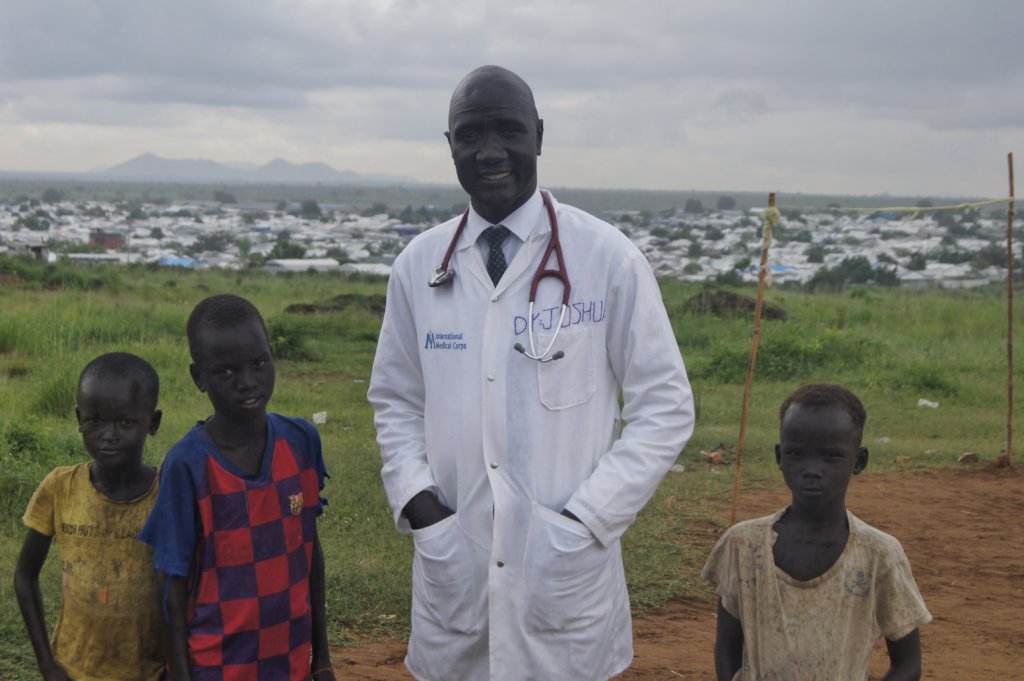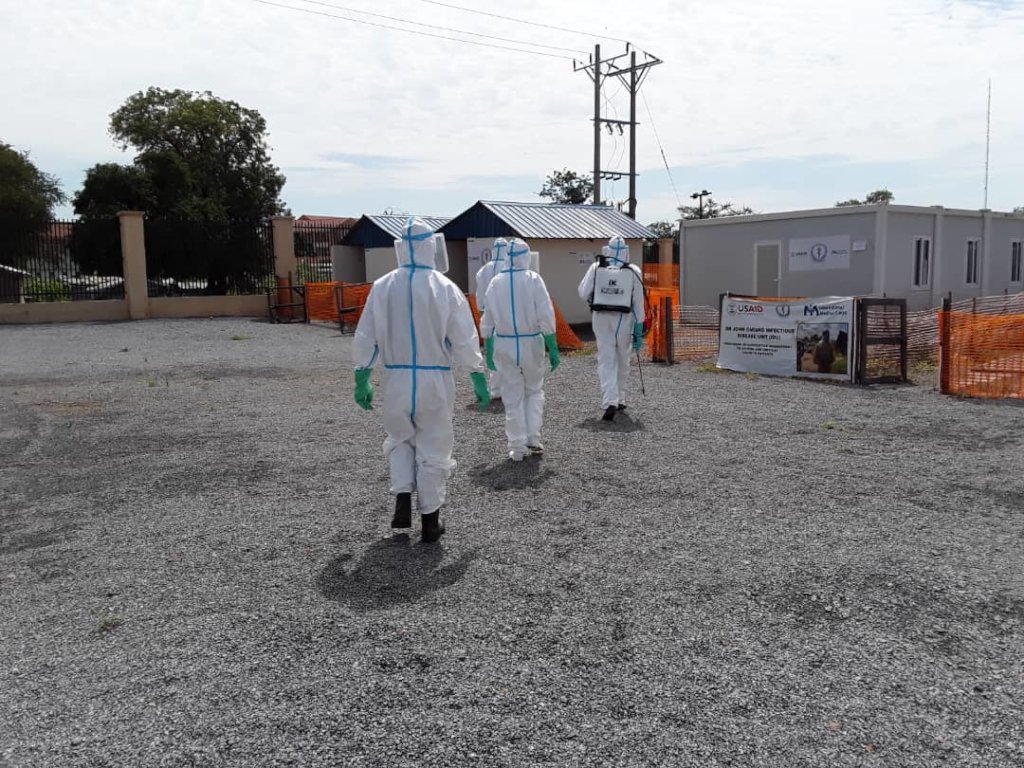By Sonia Lowman | Senior Communications Specialist
Being a doctor in South Sudan—a conflict-ridden, chronically insecure, abysmally poor country—is one of the most daunting professions on earth. Dr. Joshua, a South Sudanese medical professional in charge of International Medical Corps’ health facility in Juba’s “protection of civilians” camp, has faced many challenges over the past four-and-a-half years. When asked about the circumstances that he and his colleagues face on a daily basis, he says, with surprising lightheartedness, “We manage.” Then in May, Dr. Joshua encountered a new challenge: he contracted COVID-19.
He still does not know how he got it. As soon as reports started coming in about the pandemic, International Medical Corps took protective measures to ensure the safety of our staff around the world. He assumes he contracted the virus from a civilian who traveled to the market, where the first COVID-19 cases started appearing in early April.
In early May, Dr. Joshua came down with a severe headache. At first, this didn’t seem unusual—he sometimes gets headaches after long, stressful days. But he couldn’t sleep this one off. So he called his colleague and he told him to put on personal protective equipment (PPE) and come over to take a sample. When the test came back positive two days later, Dr. Joshua’s biggest worry was not his own health, but whether he would transmit the virus to others—particularly his patients with chronic illnesses.
By May 11, Dr. Joshua had developed a cough, high fever and chills, and our South Sudan team prepared an ambulance to take him to the COVID-19 treatment center. “During treatment, I wasn’t scared because there were a lot of people who took care of me and came and checked on me often,” he says. “I got a lot of support from my International Medical Corps colleagues in South Sudan and around the world, and lots of phone calls from my relatives and friends.”
Dr. Joshua could not be discharged until he had two consecutive negative test results, which finally happened on June 14—more than a month after the ambulance came to get him. He went back to work the very next day. “Coming back to work was very right,” he says. “I had a lot of welcoming from colleagues and the community, who told me how valuable I was to them for taking care of them.”
Across South Sudan, the number of COVID-19 cases is increasing every day, but health facilities have not yet been overwhelmed, as many people are choosing to stay home to heal, according to Dr. Joshua. International Medical Corps, which expanded the Juba Infectious Disease Unit in May and set up the country’s first and only intensive-care unit, remains vigilant to the pandemic’s threat and is prepared to respond rapidly.
Dr. Joshua remains positive and grateful. “I would like to send my gratitude to everyone who was concerned for my health from International Medical Corps, the Juba community and my colleagues who have been with me over my entire career,” he says. “I am very healthy and happy now.”
Thanks to the generous support of the GlobalGiving community, International Medical Corps continues to fight the COVID-19 pandemic in South Sudan.
Project reports on GlobalGiving are posted directly to globalgiving.org by Project Leaders as they are completed, generally every 3-4 months. To protect the integrity of these documents, GlobalGiving does not alter them; therefore you may find some language or formatting issues.
If you donate to this project or have donated to this project, you can receive an email when this project posts a report. You can also subscribe for reports without donating.
Support this important cause by creating a personalized fundraising page.
Start a Fundraiser
